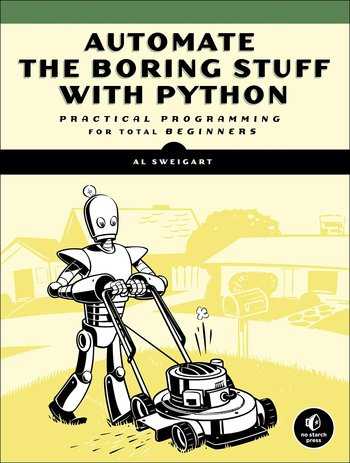Goal & Objective Setting for a QA Performance Review / Appraisal
Coming up with new objectives is hard. Absolutely no doubt about it. You know it. I know it.
With all too regularity, you have to come up with balanced, nuanced and interesting objectives that meet both your developmental and career aspirational needs.
But just as importantly, they also need to serve the needs of the company you work for.
Of course, there is the guy or girl on the other side of the fence - the manager. Spare a thought for them! They are constantly having to think up and balance new objectives to distribute to each team member.
Exhausting, isn’t it?
I have been in both of these positions. I know what this situation is like.
The worst part? Neither engineers or managers get appropriate training on proper objective setting. Sure, the manager might go on a half-day workshop once in a blue moon.
Or the engineer might be lucky enough to endure a 1-hour presentation from HR on the subject (*shudders*)
But is that really enough?
Objectives play a fundamental role in the career aspirations of all employees. So why isn’t more time spent ensuring that the most interesting, engaging and rewarding objectives get consistently set?
This is a big part of the reason I wrote a book about setting quality, compelling and meaningful objectives.
The focus of the book is on QA engineers, as for some reason coming up with those objectives can seem even harder. The truth is, the typical QA engineer has a diverse range of skills (beyond just technical) which actually increases the range of objectives they can be set!
The book - 10 Awesome Objective Ideas for QA Engineers - is out now! If you are still struggling to come up with new objective ideas, you should find this helpful.
But back to this post, and let’s look at a few things to bare in mind when setting new objectives:
Setting (Good) Objectives is not easy!
Writing good objectives is NOT easy. Whether you are coming up with them for yourself, or for someone else.
If you are anything like me, you probably won’t be able to just sit down and dash off a list of meaningful objectives in a 10 minute session. It will more likely require you to think at length and in depth about what the objectives should be, and how you are going to actually complete whatever it is you are committing to. By the way, if you CAN come up with the objectives quickly and easily, kindly fill me in on your approach!
In my younger (and more naive) days, I really couldn’t see the point of objectives.
However, with age comes experience, and I’m now finding out just how important good objectives are.
So I decided to do some digging, and see if I could find out how to define and set proper objectives, particularly for someone working in Software Testing.
Everyone (Mostly…) Hates it!
From my research, I soon discovered that setting objectives is a universal pain felt by most people in most industries, not least in development and even more so in testing.
I mean, if you think about it, testing is such an intellectual activity, how do you really measure that? I saw a great quote on a forum whilst I was looking for inspiration that sums it up nicely. When Louis Armstrong was asked ’what makes good Jazz?’ He said:
“I don’t know, but I know it when I hear it” .
You could say the same thing when it comes to testing:
“I don’t know what makes good testing, but I know it when I see it“.
It’s going to be tough to come up with solid objectives for a tester then… I already knew that!
Some more useful advice I found was to make your objectives SMART. You have probably heard this before, and although it is classic corporate / management speak, it is a good thing to bare in mind with objective setting. A SMART objective is:
- Specific
- Measurable
- Attainable
- Relevant
- Time-bound
I am not going to bother going into each of the above, you can probably get an idea just from the words what each one means and how they relate to good objectives. If you want to look into it further, have a look at SMART objectives on Wikipedia or Google it.
Try and Think Outside the Box
So back to thinking specifically about QA / Testing objectives. A good approach might be to think about your job from the perspective of your boss, and come up with goals that will improve his job in some way (even if its only a small improvement).
Is there a project that you could initiate, and take control of the testing? Could you perhaps come up with some new test plan or test strategy for the project, or is there a new tool that you could configure / implement that will help improve the project?
Remember, the objective has to be SMART! You have to have a clear specific goal in mind, that you can clearly demonstrate has been achieved when it comes to your review.
Perhaps there is some laborious process in the team that needs to be completed by certain team members or even your manager, maybe something like sanity checks on an environment every time a new build is deployed, or compiling some daily / weekly bug or status reports, or something similar.
Can you take this on yourself? Better yet, can you implement an automation approach to this task that would save time for both you are your team?
I still find it amazing the number of repetitive processes that can be automated relatively easily by something like Python. A book that was a real eye-opening for me was AUTOMATE THE BORING STUFF WITH PYTHON by Al Sweigart …. I highly suggest checking it out, as it might provide you with some great inspiration!
Keep Control of the Outcome!
As a QA / tester, when you are coming up with your objectives, you want to make sure that you are in control of the outcome as much as possible (ideally in total control). You don’t really want to be dependent on some other person or team delivering something to you in order for you to do your work to complete the objective.
It should be something that you can start working towards straight away, not something that will be put off for a few months. We are all under ridiculous workload pressures at work these days I know, and time to work on objectives can be hard to find.
So the earlier that you can start, the better!
A Great Objective that Works Pretty Much Everywhere…
A great objective to set is to commit to giving a presentation or a talk on a topic that you either know a lot about, or are interested in learning more. For some reason, I have found that as a QA, setting (and achieving) this objective seems to carry even more weight (than say compared to a regular developer), probably because it is really going above and beyond what is expected of most QAs.
Of course, to produce something of quality is going to take a considerable effort on your part, but the rewards can really be well worth it.
Now if you already know a lot about some relevant topic, then you should be able to give a valuable talk that provides useful content to your peers. If you don’t know much about the topic, then by being committed to having to give the talk then you are virtually guaranteed to learn a lot as you prepare.
Either way, both of these tick all of the boxes for a SMART objective, and are also a great way to get your name better known around the company. I am lucky where I am currently, as we hold a weekly “Lunch & Learn session”, where people are encouraged to present, but if you are at a place that doesn’t currently do that, then introduce it! Hey, even that could be a fantastic objective in itself, “Organise weekly / monthly Lunch’N’Learn sessions” where you get some food in, and people give a presentation. If you can’t get anyone to present, then you could all just watch some sort of training video or a talk from an industry leader (think of TED talks)
Further Objective Ideas
Hopefully this post gave you some inspiration to come up with new QA Objectives. If you would like further examples of great objectives for developers and testers, simply click the button below to sign up to my mailing list:




